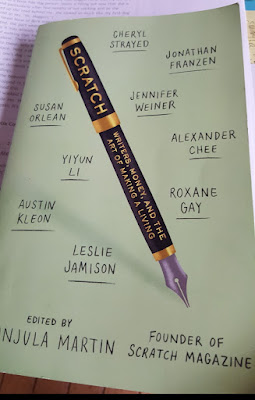 |
| Image courtesy of FOLD, Canada's Festival of Literary Diversity |
If you watch CBC News, or keep
track of literary goings-on in Canada, you are aware of the outrage that
erupted over the editorial in the latest issue of the Writers’ Union of Canada’s
magazine, Write. The issue was
devoted to Indigenous writers yet what the magazine’s editor wrote in the opening piece was a smack
in the face to the very writers the organization wanted to support and
encourage.
There’s more to the story, more
to the reactions of other (white, privileged, well-off) editors at other media
organizations but the fallout has been this: Publishing still doesn’t get what
diversity means. Calling the industry (colour) blind and ignorant doesn’t begin
to cover it.
In an excellent opinion piece published
online Sunday by Maclean’s magazine (whose editor-in-chief was one of the
editors who responded awfully to the Write magazine scandal), Phillip Dwight Morgan
provided a succinct overview of several recent examples of the double standard
and ignorance, faced by writers of colour, including at Write magazine.
Morgan wrote this powerful
sentence: “We have seen, time and time again, that ‘advocacy’
is a flexible term that is often mobilized primarily against marginalized
writers.”
It’s
true. Editors and publishers encourage people of colour to write until what
they’re writing is attacks the status quo, makes them – us – uncomfortable,
challenges us – and our institutions – to do better, to change. Then the great
white silencing machine mobilizes to shut down those voices – calling them “strident”
and “shameful” and “fundamentalist”.
As
Morgan wrote, “Mobbing, fundamentalists, riot, sad, shameful: is it just me or
are these words better suited to describing issues like carding, boil-water
advisories, and immigration detention? Should we not reserve our anger for
these kinds of issues, human rights issues affecting vulnerable populations,
rather than protecting someone pushing for a racist award?”
Yes. We
should.
For the past while, I’ve been
reading a collection of essays edited by Manjula Martin called Scratch:
Writers, Money, and the Art of Making A Living, and the day the TWUC scandal
exploded on Twitter, I opened the book to the next essay.
It was entitled, “ Diversity Is
Not Enough: Race, Power, Publishing”, by Daniel José Older.
So at the same time I’m reading the reactions of Indigenous writers to an
editorial that completely undermined the whole point of the magazine issue, I
got an in-depth look at the systemic lack of diversity in publishing.
My family is now a mixed race family;
my nieces and nephews are white and brown and black. When I look for Canadian books to
send to them, I’m consciously seeking children who look like them. Hard to find. Yet
I don’t feel it’s my place to write stories for them. I can’t write
authentically about what it’s like to be a child, or person, of colour. I won’t
even try. But there is something else I can do as a writer.
Older expressed eloquently what
the Canadian Indigenous writers, and their supporters, have been saying online and on air since
last Friday. Near the end of the essay, Older writes, “Diversity is not enough.
We’re right to push for diversity, we have to, but it is only step one of a
long journey. Lack of racial diversity is a symptom. The underlying illness is
institutional racism. It walks hand in hand with sexism, cissexism, homophobia,
and classism. To go beyond this same conversation we keep having, again and
again, beyond tokens and quick fixes, requires us to look the illness in the
face and destroy it. This is work for white people and people of colour to do,
sometimes together, sometimes apart. It’s work for writers, agents, editors,
artists, fans, executives, interns, directors and publicists. It’s work for
reviewers, educators, and administrators. It means taking courageous,
real-world steps, not just changing mission statements or submission
guidelines.”
I can’t know what it’s like to be
a person of colour, and I certainly wouldn’t write as one, as the now-former editor
of Write magazine seems to think it is appropriate to do. But now that I am aware,
now that my eyes are opened and my brain engaged, I feel called to use what influence
I have and the voice I possess to do the work to destroy everything that keeps
everyone from achieving their potential.
I live in rural Nova Scotia, and
my interactions with Indigenous people and people of colour are, regrettably,
non-existent. Yet I will do the work to seek out those whose stories deserve a
platform. One that won’t undermine them.
I have two platforms by which I
can bring attention to the issue of the oppression of voices that experience
the world differently than I (we) do: as a writer and as a lay worship leader in the
United Church. The crowds to which I speak online and in church may not be
large but that’s no excuse to say nothing. I can’t deliver a message every week about compassion,
justice and mercy yet ignore the marginalized, the oppressed and the ignored.
Onto my white-washed world, I
plan to start tossing some colour, courageously and respectfully.
Here's the link to Phillip Dwight Morgan's opinion piece:
http://www.macleans.ca/opinion/journalists-were-told-shouldnt-become-the-news-so-why-should-editors/
If you want the whole story, here's is the Canadian Journalism Project's overview:
http://www.j-source.ca/article/appropriationprize-controversy-timeline

No comments:
Post a Comment